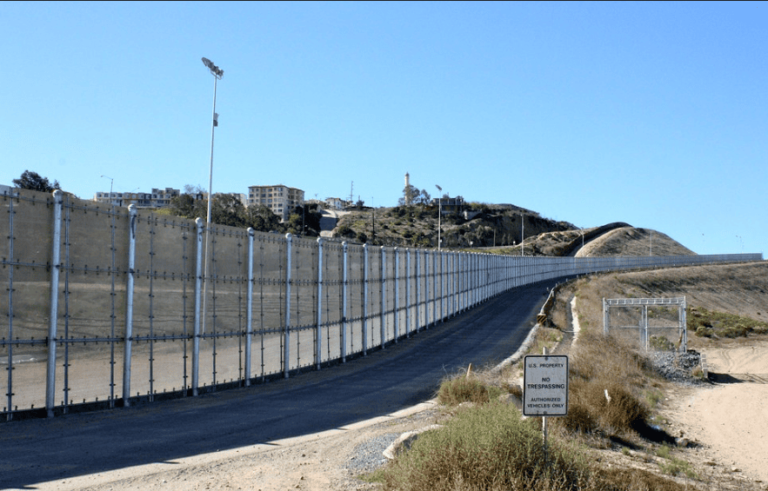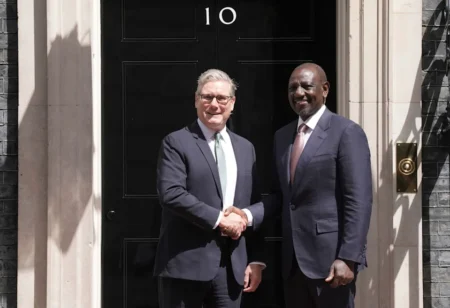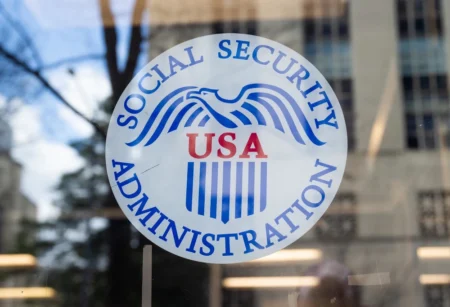Mexico is facing increased pressure from the United States to take stronger action against drug cartels. This comes as U.S. military flights near Mexico’s southern border raise alarms. The flights, which are part of U.S. surveillance and reconnaissance efforts, have sparked concern. The situation is a reminder of the growing tension between the two countries. For Mexico, the situation is even more delicate due to its heavy reliance on trade with the U.S.
U.S. Military Flights Raise Concerns
Recently, the U.S. has been conducting more military flights along Mexico’s southern border. These flights have flown close to Mexican airspace, which has caught the attention of many. The missions are designed for surveillance. However, the proximity of these flights to Mexican territory has raised questions about the U.S. approach.
The Mexican government has responded with caution. General Ricardo Trevilla, Mexico’s Secretary of Defense, said the purpose of these flights was unclear at first. However, he assured the public that the U.S. was following international regulations. Trevilla also added that Mexico has been in communication with U.S. officials. This communication was meant to ensure the flights complied with agreements between the two countries. Still, the increased military activity near the border has left Mexico wary.
Mexico’s Delicate Situation
Mexico’s relationship with the U.S. is complex. The country relies heavily on trade with its northern neighbor. About 80% of Mexican exports go to the U.S. This trade dependence puts Mexico in a difficult position when dealing with U.S. demands. The situation has only grown more challenging with the return of Donald Trump to the White House.
Trump’s return has brought uncertainty to Mexico’s political landscape. The possibility of U.S. tariffs on Mexican goods is once again on the table. These tariffs could significantly impact the Mexican economy. With this in mind, Mexico is choosing to take a cautious approach in its dealings with the U.S. President Claudia Sheinbaum has downplayed the situation. She has stated that the country is not alarmed by the U.S. flights. She also emphasized the need for coordination and collaboration in tackling drug trafficking.
U.S. Military’s Growing Role in Mexico’s Security
The U.S. is taking a more hands-on approach in addressing Mexico’s drug cartel problem. General Gregory Guillot, commander of the U.S. Northern Command, has confirmed that the U.S. is increasing its military presence in the region. The U.S. military is focused on gathering intelligence on the cartels. This includes sharing information with Mexican authorities.
Guillot also noted the need for more U.S. troops to combat the fentanyl crisis. The U.S. has already increased its maritime presence in cooperation with the Coast Guard. This increase in military involvement shows the U.S. is taking a more aggressive approach toward Mexico’s drug violence. Mexico, however, is left with little room to resist.
Unilateral Actions and Rising Tensions
The U.S. has made it clear that it is not waiting for Mexico’s approval to take action. Carlos Pérez Ricart, a security expert, believes that unilateral actions will continue under Trump’s leadership. He states that Mexico has few options to push back against the U.S. demands. While U.S. intervention may not seem immediate, Ricart notes that it is still a possibility. Trump’s rhetoric has only added to the strain in relations. His focus on issues such as organized crime, fentanyl, and illegal immigration has painted Mexico as the source of many problems.
For Trump, these issues are all interconnected. In his view, a migrant can also be a criminal who smuggles drugs or contributes to violence. This approach has placed Mexico in a difficult position. The country must navigate the growing pressure from the U.S. while also managing its internal challenges. The increase in U.S. military presence makes it clear that the U.S. is willing to take matters into its own hands if necessary.
The Impact of Trump’s Leadership
Trump’s return to power has heightened tensions between the U.S. and Mexico. His policies, particularly on issues like fentanyl and illegal immigration, have led to a more aggressive stance toward Mexico. The increased U.S. military presence and the potential for tariffs are both signs of the pressure Mexico faces. The Mexican government must walk a fine line in dealing with these issues while avoiding further escalation.
Mexico’s Security Forces: A Bigger Role in Combatting Cartels
As the U.S. increases its involvement in Mexico’s security, Mexico’s own security forces are also stepping up their efforts. The Mexican government is working to strengthen its security apparatus. However, the challenge of combating cartels remains significant. Despite these efforts, the U.S. continues to push for more action, creating friction between the two countries.
The possibility of U.S. troops entering Mexican territory remains a concern. While this may not happen in the immediate future, the growing U.S. presence is seen as a warning sign. If the U.S. decides to take more direct action, it could set a dangerous precedent for future relations between the two nations.
What’s Next for Mexico and the U.S.?
The situation between Mexico and the U.S. remains tense. As the U.S. continues to focus on drug violence and other issues, Mexico must find a way to balance cooperation with its northern neighbor while maintaining control over its own affairs. With the pressure mounting from the U.S. and the stakes higher than ever, it is unclear how this delicate situation will unfold.
For more on international relations and the evolving situation between the U.S. and Mexico, visit Daljoog News.







